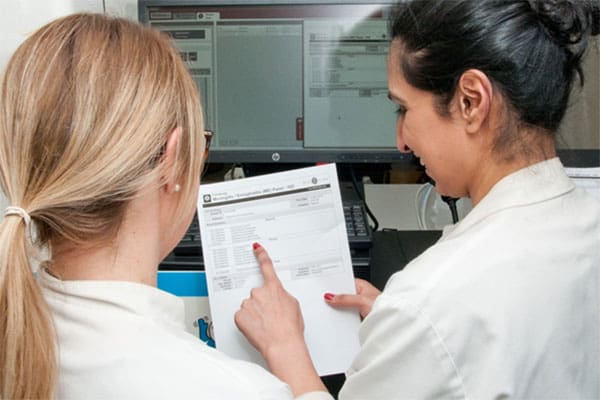We are funding new cots for the maternity ward at Macclesfield District General Hospital, where at least 1,600 babies are born each year. Since every baby will need a cot to ensure sleep safety, the ward requires 26 to be available for postnatal women and their babies. In March 2020 the hospital suspended its inpatient maternity services because of the COVID-19 pandemic. The maternity department is now planning to reopen and is carrying out a review of its equipment. The existing cots are decades old, some are damaged, and may not comply with enhanced infection control regulations. Unfortunately, there is no NHS funding to replace them, so we have agreed to provide 12 new cots for the department.
Donate now
More Projects
UHSM Neonatal Unit – Monitoring Equipment
The Neonatal Unit at Wythenshawe Hospital cares for approximately 500 babies each year from across the South Manchester area. Up to 40% of these babies will need additional help with breathing or treating for conditions like jaundice. All babies have their oxygen level and heart rate monitored on admission to the unit. MedEquip4Kids have agreed […]
Find out more →Blackpool Teaching Foundation Trust Paediatric Continence Service – Equipment
Blackpool Paediatric Continence Service provides community care for upward of 500+ children in schools, Clinics and their own homes.
Find out more →Macclesfield District General Hospital – Airvo Optiflow System & Syringe Drivers and Infusion Pumps
The Paediatric Unit at Macclesfield District General Hospital cares for children aged from 0-18 from across the East Cheshire area. During the winter months, more children need care for respiratory conditions meaning the ward is busier and the demand for essential equipment increases.
Find out more →“Infections of the central nervous system need urgent and appropriate treatment. Most laboratory methods can take from 24 to 48 hours for diagnosis of bacterial meningitis and three to seven days for diagnosis of viral meningitis or encephalitis. The new equipment will mean we can get results of these tests in around an hour. We’ll be able to inform the clinicians of a positive result, allowing targeted therapy and reassurance to the patients and families. Just as important is the reporting of negative results, which may enable treatment withdrawal and possibly a shorter hospital stay.”
Dr Pradeep Subudhi
Consultant Microbiologist
Royal Bolton Hospital











